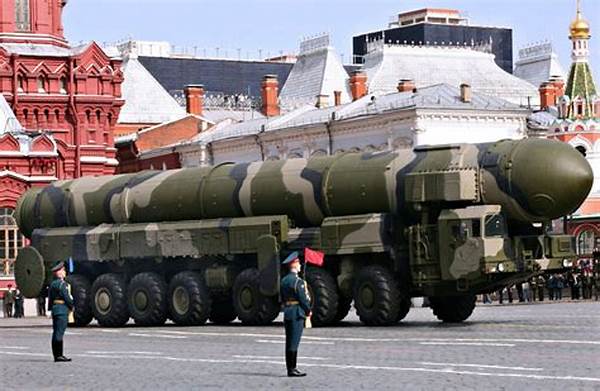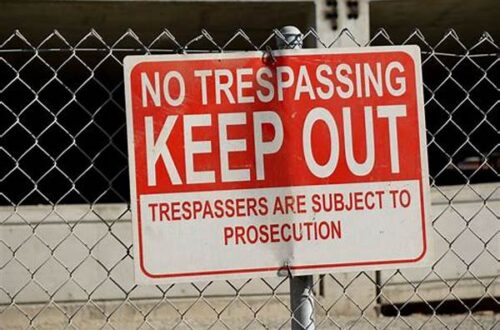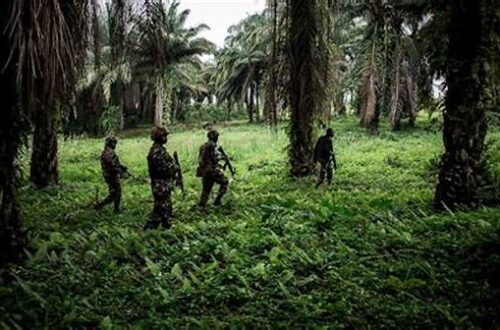The Complexity of Security Dilemmas with Nuclear Arsenals
In the contemporary global landscape, the term “security dilemmas with nuclear arsenals” refers to the paradoxical situation where actions taken by states to increase their security usually result in increased insecurity for other states. This phenomenon is prevalent in the context of nuclear weapons, where countries, in their pursuit of safeguarding national sovereignty and deterrence, contribute to heightened tensions and strategic instability. The presence of nuclear arsenals is meant to safeguard peace through deterrence, yet it simultaneously poses an existential threat to global security.
The evolution of nuclear arsenals across the world has aggravated these dilemmas, where the mere existence of such weapons has exacerbated international relations. As states build up their arsenals, they ignite an arms race, leading competitors to enhance their security measures correspondingly. This relentless pursuit of security through nuclear armament creates a cycle of mistrust, with nations doubting each other’s intentions, thereby complicating diplomatic efforts and peace negotiations. As a result, the intended security benefits of maintaining these arsenals often lead to heightened insecurity—a classic security dilemma.
Efforts to address the security dilemmas with nuclear arsenals have been attempted through numerous treaties and disarmament discussions at an international level. However, mutual distrust and geopolitical rivalries hinder significant progress. The need for transparency, effective communication, and verified steps toward disarmament are frequently emphasized in international forums. Until substantial measures are taken to mitigate these dilemmas, the global community continues to live under the persistent shadow of potential nuclear conflict.
The Historical Context and Current Threats
Understanding the historical context of security dilemmas with nuclear arsenals is crucial for comprehending current threats. The Cold War era was marked by an arms race between superpowers, creating profound tensions worldwide. Even today, residual rivalries continue to fuel security challenges.
The principle of mutually assured destruction (MAD) epitomizes the complexities inherent in security dilemmas with nuclear arsenals. Nations possess these arsenals as a deterrence mechanism rather than a first-strike option, perpetuating a state of precarious balance.
Geopolitical conflicts often exacerbate security dilemmas with nuclear arsenals, as seen in regions like the Korean Peninsula. The presence of nuclear capabilities amplifies tensions, making diplomatic resolutions increasingly challenging.
International treaties, such as the Treaty on the Non-Proliferation of Nuclear Weapons (NPT), aim to reduce security dilemmas with nuclear arsenals, yet their effectiveness is frequently questioned due to non-compliance and geopolitical frictions.
Non-state actors gaining access to nuclear materials pose a significant risk, intensifying security dilemmas with nuclear arsenals. Global coordination is essential to prevent potential catastrophic outcomes from falling into the wrong hands.
International Diplomatic Efforts and Challenges
Addressing the security dilemmas with nuclear arsenals requires concerted international diplomatic efforts, though these are fraught with challenges. The diplomatic stage is characterized by negotiations and treaties aimed at arms reduction and non-proliferation. However, achieving meaningful progress is often hindered by deep-seated mistrust between states and the strategic significance of nuclear capabilities. For instance, despite the signing of various accords like the START (Strategic Arms Reduction Treaty) between the U.S. and Russia, mutual suspicions and geopolitical rivalries persist. This creates barriers to further disarmament, demonstrating the complex web of challenges intrinsic to security dilemmas with nuclear arsenals.
Moreover, varying national interests and priorities further compound these challenges. Countries like North Korea and Iran present unique diplomatic challenges, as their pursuit of nuclear capabilities is entangled with regional security considerations. These situations necessitate a nuanced approach to diplomacy, where engagement must be balanced with strategic deterrents and assurances. Additionally, the role of international organizations such as the United Nations and the International Atomic Energy Agency (IAEA) is pivotal, yet their effectiveness is often constrained by political influences and varying levels of state cooperation in addressing security dilemmas with nuclear arsenals.
The Role of Technology and Innovation
Technology and innovation play a crucial role in shaping security dilemmas with nuclear arsenals. Advanced technology leads to the development of sophisticated nuclear weapons and delivery systems, thereby intensifying the existing security challenges. For instance, the miniaturization of nuclear weapons and the advent of hypersonic missiles have altered the strategic calculus, posing new threats to global stability. Innovations in cyber warfare also represent an emerging frontier in security dynamics, with the potential to disrupt nuclear command and control systems, escalating the risks associated with security dilemmas with nuclear arsenals.
Furthermore, technology fosters opportunities for verification and monitoring, essential components in mitigating security dilemmas with nuclear arsenals. The use of satellite imagery, remote sensing, and blockchain in tracking nuclear materials enhances transparency and builds confidence between states. However, while technological advancements provide avenues for confidence-building measures, they also present new ethical and security concerns that must be addressed through international cooperation and governance frameworks. The dual nature of technology as both a facilitator of peace and a potential catalyst for insecurity underscores its intricate relationship with security dilemmas with nuclear arsenals.
The Ethical Dimensions
The ethical dimensions of security dilemmas with nuclear arsenals are profound and multifaceted. The moral implications of possessing weapons of mass destruction, capable of annihilating humanity, question the very fabric of international relations and state responsibility. Debates center around the morality of deterrence doctrine, which justifies the possession of nuclear arsenals based on the premise of preventing war. This ethical paradox—whereby peace is hoped to be maintained through the threat of destruction—challenges conventional moral reasoning.
The humanitarian impact of nuclear weapons further compounds these ethical dilemmas. The catastrophic humanitarian and environmental consequences of potential nuclear use highlight the urgent need for ethical considerations in the discourse on security dilemmas with nuclear arsenals. Civil society, including non-governmental organizations and global movements advocating for disarmament, plays an integral role in championing the ethical imperatives of a nuclear-free world. Their efforts underscore the moral responsibility of nations to prioritize human security and survival over reliance on nuclear weaponry, thus contributing to the broader dialogue on security dilemmas with nuclear arsenals.
Regional Dynamics and Security Complexes
The security dilemmas with nuclear arsenals are significantly influenced by regional dynamics and security complexes. In the South Asian context, the India-Pakistan nuclear dyad exemplifies how regional rivalries exacerbate security challenges. Both nations maintain nuclear arsenals to deter each other, resulting in an unstable security environment where the risk of escalation is ever-present. Similarly, the Middle East presents a complex security landscape, where concerns over nuclear proliferation are intertwined with regional power struggles, ideological conflicts, and external interventions.
In East Asia, North Korea’s nuclear ambitions further complicate the security matrix, eliciting responses from regional powers and the international community. The interplay of alliances, historical tensions, and strategic interests necessitates a comprehensive understanding of security dilemmas with nuclear arsenals from a regional perspective. Constructive engagement, confidence-building measures, and regional security arrangements are essential to addressing these multifaceted challenges and ensuring stability in various parts of the world impacted by security dilemmas with nuclear arsenals.
Summary of Security Dilemmas with Nuclear Arsenals
In summary, the security dilemmas with nuclear arsenals present a multifaceted challenge to global security, characterized by the complexity of international relations, technological advancements, ethical considerations, and regional dynamics. The arms race phenomenon underscores the paradoxical nature of seeking security through nuclear capabilities, often resulting in increased insecurity for all parties involved. The deterrent value of nuclear weapons serves to prevent direct conflict, yet simultaneously locks states into a perpetual cycle of mistrust and strategic competition.
International efforts to address security dilemmas with nuclear arsenals have been met with limited success due to factors such as geopolitical rivalries, proliferation concerns, and the asymmetrical distribution of nuclear capabilities across nations. The persistent threat of nuclear conflict necessitates continuous dialogue, transparency, and cooperation among the global community. A comprehensive approach to these dilemmas requires the integration of diplomatic efforts, technological innovation, ethical imperatives, and regional cooperation. Only through concerted and sustained efforts can the international community hope to mitigate the risks inherent in security dilemmas with nuclear arsenals and work towards a more secure and stable world.





